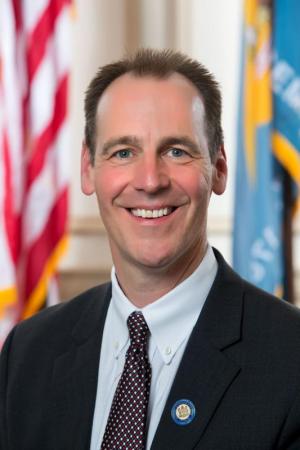Amidst all the partisan dysfunction that seems to define D.C. politics these days, the prospect of a genuinely bipartisan deal on infrastructure funding leaps out as a ray of hope.
It’s particularly good news for Delawareans living in the broadband deserts that still dot rural and newly developing areas of our state such as southern New Castle County. As long as this funding is targeted smartly and managed efficiently, the bipartisan agreement to spend $65 billion expanding internet access should be enough to finally finish the job of bringing high-speed networks to every corner of Delaware, turbocharging economic development in fast-growing areas like Middletown and Odessa.
Reports suggest that the bipartisan deal will task state governments with the hard work of effectively putting these federal broadband dollars to work on the ground. If so, Delaware will do well to study the hard-earned lessons from earlier broadband projects that offer a clear roadmap of what works – and what doesn’t.
The most obvious lesson is the one federal programs nonetheless have frequently gotten wrong: We’ll need to make sure the money gets invested in the unconnected communities that truly need it.
Most communities in Delaware are already reaping the benefits of ultra-fast broadband infrastructure. Ninety-eight percent of homes have internet service available, and we enjoy some of the fastest average speeds of any state. The gaps that remain are in more rural areas, where longer distances between homes greatly increase the costs of building networks that reach everyone. I frequently hear from constituents in southern New Castle County voicing their frustration with these gaps in access. That’s where these federal dollars are urgently needed.
The last time Washington passed a big infrastructure stimulus package in 2009, far too many of the broadband dollars were instead spent on projects in communities that already had fast networks built out. Federal programs created with a goal of connecting millions of unserved homes managed only a tiny fraction of that goal.
Even with the benefit of this hindsight, some activists and think tanks are eager to repeat the same mistakes this time, by changing eligibility rules and broadband speed definitions so dramatically that more than half of the country would become considered unserved. This change would force those living in broadband deserts, with no options at all for high-speed service, to compete for funding against some urban and suburban neighborhoods where high-speed gigabit networks already exist.
This makes no sense. We have a moral obligation to prioritize getting broadband service into the areas that currently have no options before we divert any taxpayer dollars to subsidize luxury projects in neighborhoods already online. If we stay focused, we can get the job done.
The second big lesson here is to encourage every broadband provider to compete for buildout funds on a level playing field. High-speed fiber and advanced cable networks can deliver the increasing bandwidth needs consumers demand, while new technologies like 5G fixed wireless and low-earth satellites may also be good options in some areas. Government agencies shouldn’t be picking favorites based on special-interest lobbying or political pressure; we need to let every technology compete evenly to deliver better results faster, and at the best cost for taxpayers.
Third, we should stay focused on direct approaches that work, and reject ideological demands to have local governments take over the delivery of broadband service.
Municipal broadband projects have failed in one community after another, often leaving taxpayers on the hook for huge costs. Mayors and city managers have more than enough on their plates without also expecting them to become experts in network engineering and cybersecurity.
And lastly, while we’re building out networks to reach every last home across Delaware, we’ll also need a parallel effort to make sure every Delawarean is empowered to actually connect and take advantage.
The federal Emergency Broadband Benefit is already helping millions of low-income families with a modest monthly subsidy for broadband service, and momentum is growing to make this effort permanent. State and local governments can bolster these efforts by investing in digital literacy education, and partnering with local churches, libraries, and community organizations that can reach unconnected neighbors and help more to get online.
In Washington, lawmakers from both parties are courageously risking the ire of their more extreme colleagues to forge a historic compromise on broadband infrastructure spending. Here in Delaware, we can embrace the same sense of pragmatism and purpose by ensuring these federal dollars get spent wisely and efficiently to reach the communities where they’re most needed.
















































